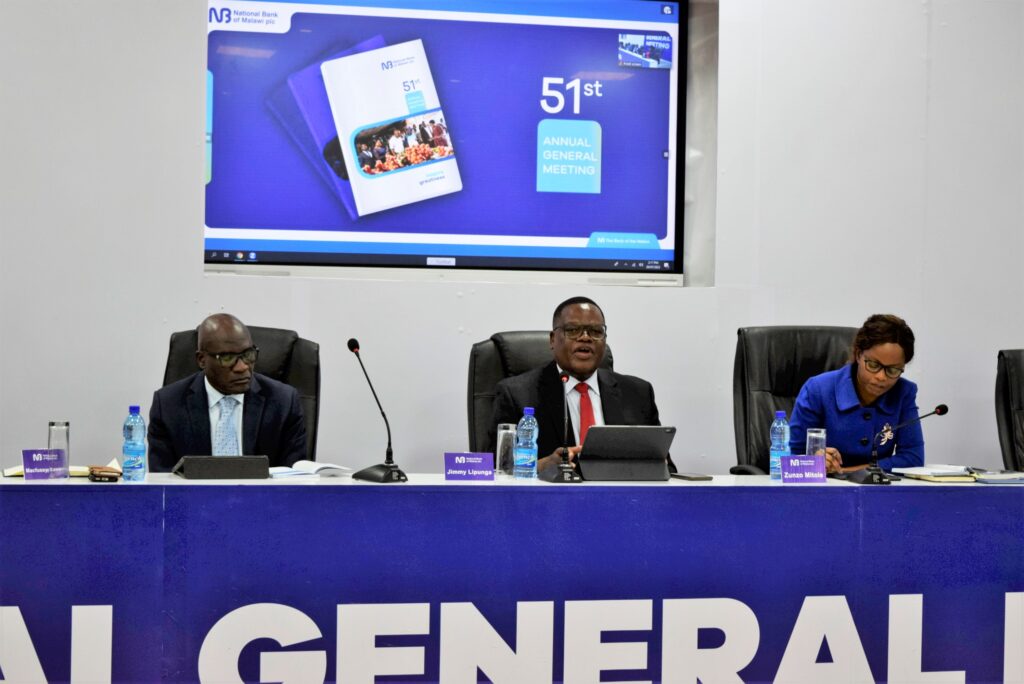
National Bank of Malawi (NBM) Plc has expressed optimism on turn-around investment for its subsidiaries, Akiba Commercial Bank in Tanzania and United General Insurance Company Limited (UGI) in 2023.
NBM holds 47 percent of UGI’s share capital, and also acquired 60.48 percent shareholding in Akiba Bank in 2021.
However, during NBM’s 2023 Annual General Meeting (AGM) in Blantyre on Thursday, board chairperson Jimmy Lipunga announced an increase in profit-after-tax for the year 2022 of K45.9 billion from K34 billion representing a 34% increase, with the two subsidiaries registering losses.
“When you are acquiring new subsidiaries, the rule of thumb is you start with the unsuccessful ones. You don’t go for good performing entities because you will destroy your capital. So, the best is to go to ailing institutions and then use your capability to turn them around.”
“About Akiba (Commercial Bank), the intention is to improve deposit mobilization, and also minimize the cost of doing business there, as a result of these initiatives we have seen a turn-around and we expect profitability to be returned by the end of 2023. The same is true of United General Insurance company, and tough measures have been put in place likewise. We expect a different story in a year,” said Lipunga.
According to NBM’s financial performance report, Akiba Bank made a loss after tax of K4.072 million in the year ending December 31, 2022, while in 2021 it was K1.942 million which has been attributed to significant increases in provisions for loans and tax.
On NBM’s overall performance, Lipunga also highlighted some factors that caused a turbulent financial environment despite the success registered.
“The growth in 2022 was adversely affected by weather-related shocks in some parts of the country such as erratic rains and cyclones. The country experienced cyclones Ana and Gombe, which came along with heavy rains and subsequent flooding particularly in the southern part of Malawi during the first quarter of 2022.”
“The economy also faced a critical shortage of foreign exchange which precipitated a 25 percent devaluation of the Malawi Kwacha mid-year thereby putting a lot of pressure on inflation. The Russia/Ukraine war which started in February 2022 led to global supply chain challenges and high commodity prices,” explained Lipunga.
Shareholder Emmanuel Chinunda hailed the Bank for the share appreciation which he said has been high in most of the counters.
“This is a stellar performance. They have performed extremely well and we as shareholders are happy with the results,” said Chinunda.